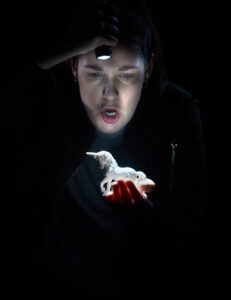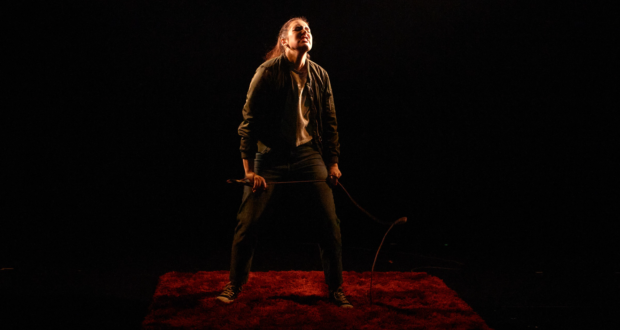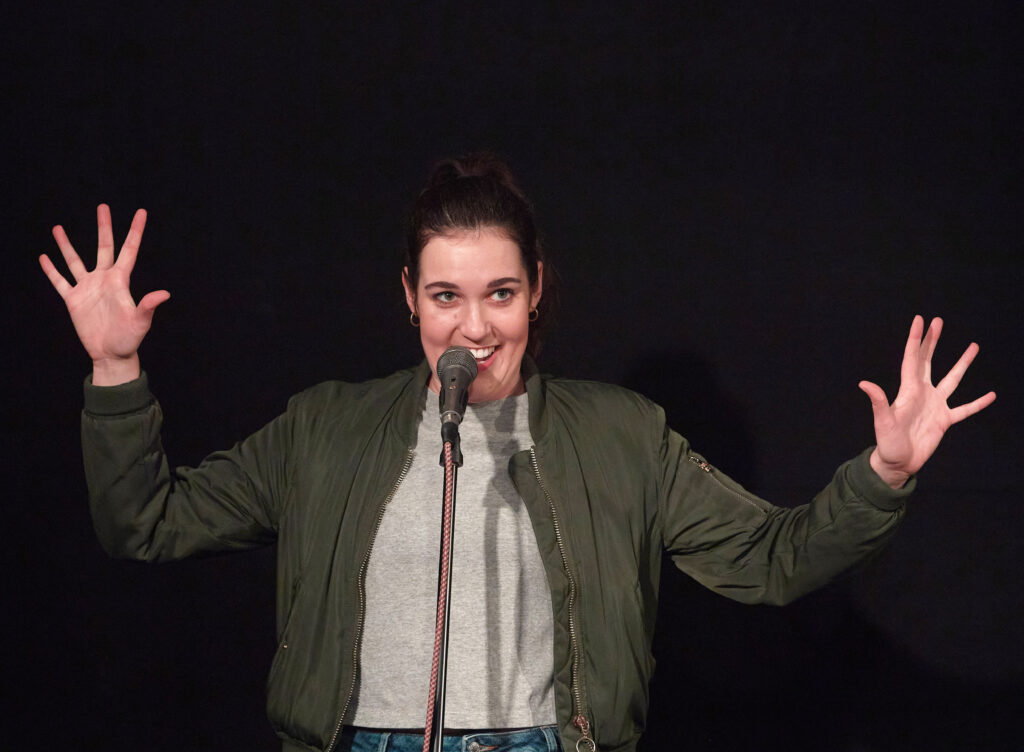Sam Potter tells us about her play The Unicorn at the Arcola Theatre
A unicorn is a unique and mysterious creature, but one that everyone is anxious to get a glimpse of. Sam Potter’s play The Unicorn, playing at the Arcola Theatre in June, might also be exactly that. Here she tells us about the evolution of the show, its taboo topic of sex addiction, and how people have reacted to the production.
When I tell people I’ve written a play about sex, I get one of two responses. Most people start giggling and making jokes. The British still seem to have an end-of-the-pier relationship with our sex lives that we can’t quite shake off. The other response, to my surprise, is disapproval. People go quiet, they stop making eye contact with me and swiftly change the subject. So, embarrassment or shame. Those are the two options. Sex is either funny or wrong.
What almost no-one does, is tell me anything about their actual sex life. I will occasionally be told about a friend of a friend, or about a documentary that someone has seen, but virtually no-one tells me anything about themselves. Because, while there may be endless porn on the internet and Naked Attraction on Channel 4 and God knows what on Netflix, when it comes to people’s actual sex lives talking about it openly, for most of us, is still taboo.
 The idea for The Unicorn came about by chance. One night, I finished work late and bought a fashion magazine to read on my train journey home. Inside was an article about a woman who had become addicted to sex following a stressful event in her life (anonymously written, of course). Something in this woman’s account spoke to me on a deep level and I knew I needed to write a play about sex addiction. I related to the relief she’d felt at expressing her trauma through sex. I understood why you would react to stress by reaching out to others physically. It made complete sense to me. I didn’t understand why for a long time, but eventually I realised that as a young woman, recovering from an eating disorder in my late teens, there was definitely a period of my life when I had used sex as therapy.
The idea for The Unicorn came about by chance. One night, I finished work late and bought a fashion magazine to read on my train journey home. Inside was an article about a woman who had become addicted to sex following a stressful event in her life (anonymously written, of course). Something in this woman’s account spoke to me on a deep level and I knew I needed to write a play about sex addiction. I related to the relief she’d felt at expressing her trauma through sex. I understood why you would react to stress by reaching out to others physically. It made complete sense to me. I didn’t understand why for a long time, but eventually I realised that as a young woman, recovering from an eating disorder in my late teens, there was definitely a period of my life when I had used sex as therapy.
The Unicorn started life as a 15-minute short monologue, presented at the North Wall in Oxford in 2019. It was a workshop showing, performed mid-afternoon in open white light, but despite the less-than-ideal setting, it went down really well with the audience. We received lots of positive feedback but what made it different to other plays I have written was that people didn’t openly tell me how the play related to their lives. What they wanted to do instead was to talk to me about the show quietly, one-on-one, in hushed tones, like they were sharing a secret for my ears only.
Like many shows over the last few years, the full-length version of The Unicorn has had a longer incubation period than plays usually have the luxury of, but in many ways that has been our saving grace, because it has given me the time to do lots of research. The vast majority of that was in the form of first-hand interviews. Once I explained why I wanted to know, people were willing to talk. Perhaps not in groups – nearly all the conversations I had were still one-on-ones, in dark spaces, in whispered tones – but people did tell me things about themselves and about their friends and about people they knew.
I researched sex addiction and discovered that it isn’t something which only happens conveniently to famous film stars, trying to explain away serial affairs, it happens to real people, living real lives and it’s a very hard thing to go through. The fact that it is not talked about makes the shame and secrecy of it worse. It makes a form of communication – that could potentially be a useful way of expressing stress or trauma – become something to be hidden. Something to be pushed into the darkness.
 Sex addiction is distressing for anyone who suffers from it, but you could definitely argue that it is more complicated for a woman. There is still a huge double standard in society when it comes to women and sex. A man who sleeps with lots of people is congratulated and admired; he’s Casanova, he’s Jack the Lad, he’s a Player. A woman is at best a slut and at worse a nymphomaniac (which incidentally is a word defined in the dictionary as: a woman with uncontrollable or excessive sexual desire. Men literally can’t be nymphomaniacs). Many times, a woman with a strong sex drive is seen as inviting sex from anyone, like she has lost the right to decide. But everyone is entitled to choose what they consent to and what they don’t, at every moment.
Sex addiction is distressing for anyone who suffers from it, but you could definitely argue that it is more complicated for a woman. There is still a huge double standard in society when it comes to women and sex. A man who sleeps with lots of people is congratulated and admired; he’s Casanova, he’s Jack the Lad, he’s a Player. A woman is at best a slut and at worse a nymphomaniac (which incidentally is a word defined in the dictionary as: a woman with uncontrollable or excessive sexual desire. Men literally can’t be nymphomaniacs). Many times, a woman with a strong sex drive is seen as inviting sex from anyone, like she has lost the right to decide. But everyone is entitled to choose what they consent to and what they don’t, at every moment.
And these aren’t trivial issues. We live in a world where the conversation about sex, particularly with our young people is being led by an increasingly extremist porn industry. Do we want our children’s first questions about sex to be; what is porn, and what is rape? Because that was my experience. We live in a world where issues of consent are deeply troubling. Only 1% of reported rapes are convicted. That is a shameful situation. We need to talk openly and honestly about sex. It’s important. So that’s why we have made this play because we want to bring conversations about sex and sexuality out of the darkness and into the light.
Our thanks to Sam for taking time out of her busy schedule to chat. The Unicorn plays at the Arcola Theatre from Wednesday 7 to Saturday 24 June. Details can be found here.
You can read our review of the show when it played at EdFringe in 2022 here.
 Everything Theatre Reviews, interviews and news for theatre lovers, London and beyond
Everything Theatre Reviews, interviews and news for theatre lovers, London and beyond




